Global warming is a term that has become synonymous with climate change, environmental degradation, and ecological imbalance. Yet, beyond these headlines lies a complex web of consequences that stretch far and wide, impacting not just the planet but every living creature inhabiting it.
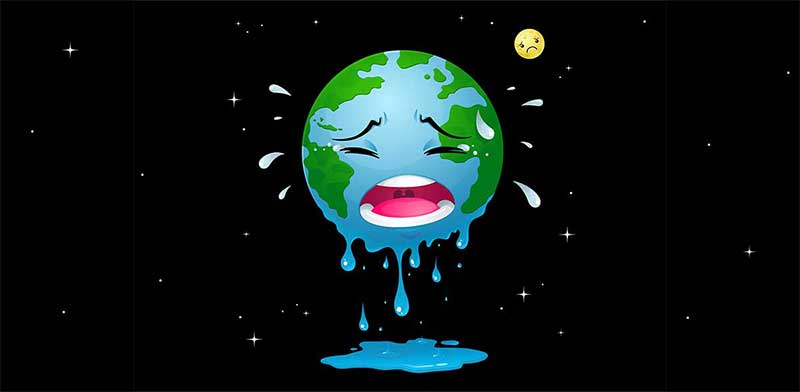
This article aims to unravel the unseen hand of global warming, delving into its far-reaching impacts on the environment, human health, economies, and biodiversity.
Environmental Devastation
At the heart of global warming’s impact is the environment. The rise in Earth’s average temperature has triggered a cascade of environmental changes, starting with the melting of polar ice caps and glaciers.
This phenomenon not only threatens polar bears and other Arctic wildlife but also contributes to rising sea levels. Coastal cities and island nations face an existential threat from encroaching waters, potentially displacing millions of people and leading to loss of land.
Moreover, global warming exacerbates extreme weather events. Hurricanes, typhoons, and cyclones are becoming more frequent and intense, bringing with them devastating floods and wind damage.
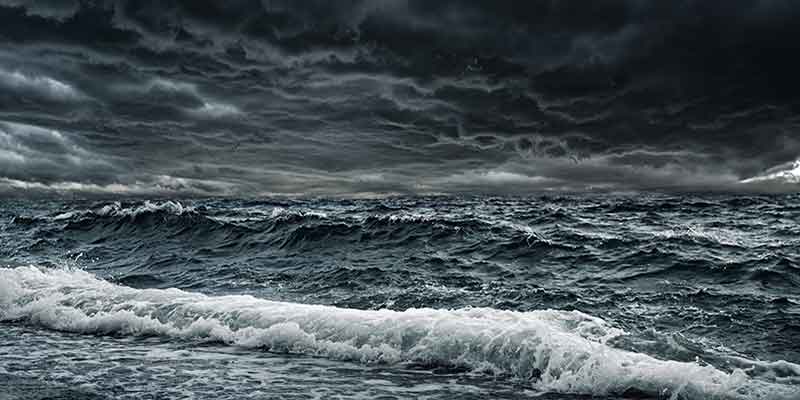
Similarly, prolonged droughts are becoming more common in various parts of the world, leading to water scarcity and threatening agricultural productivity. The altered precipitation patterns also mean that some regions experience heavier rainfall while others face severe droughts, creating a dichotomy that disrupts ecosystems and human societies alike.
Impact on Human Health
The repercussions of global warming extend into the realm of human health as well. Rising temperatures lead to potentially deadly heatwaves, especially affecting vulnerable groups like the elderly and individuals with pre-existing health conditions.
The World Health Organization (WHO) has reported an increase in heat-related illnesses and deaths as global temperatures climb.
Additionally, warmer climates create ideal breeding grounds for disease-carrying vectors like mosquitoes. Diseases such as malaria, dengue fever, and Zika virus are spreading to regions previously unaffected by these ailments.
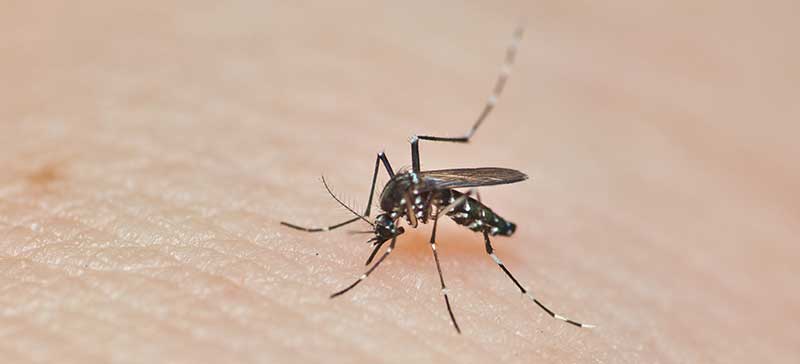
Furthermore, poor air quality resulting from increased emissions of pollutants like carbon dioxide exacerbates respiratory problems such as asthma and bronchitis.
Economic Ramifications
Global warming’s economic impacts are profound and multifaceted. Agriculture, which forms the backbone of many economies worldwide, is particularly vulnerable.
Shifts in growing seasons, unpredictable weather patterns, and increased incidence of pests and diseases jeopardize crop yields. Farmers struggle to adapt to these changes, often facing financial ruin when their harvests fail.
Moreover, the fishing industry is under threat due to ocean acidification—a direct result of increased carbon dioxide levels—altering marine ecosystems and depleting fish stocks. Communities dependent on fishing for their livelihoods are left grappling with economic insecurity.
Infrastructure is another sector feeling the brunt of global warming. Extreme weather events cause extensive damage to roads, bridges, buildings, and other infrastructure elements. The cost of repairs and rebuilding places a significant financial burden on governments and taxpayers.
Biodiversity at Risk
Biodiversity—the variety of life on Earth—is intrinsically linked to the stability of ecosystems. Global warming poses a grave threat to this biodiversity. Many species are unable to adapt quickly enough to changing temperatures and habitats. Coral reefs, often referred to as the “rainforests of the sea,” are particularly vulnerable.
Rising sea temperatures lead to coral bleaching—a process where corals lose their vibrant colors and essential life-supporting algae—resulting in massive die-offs.
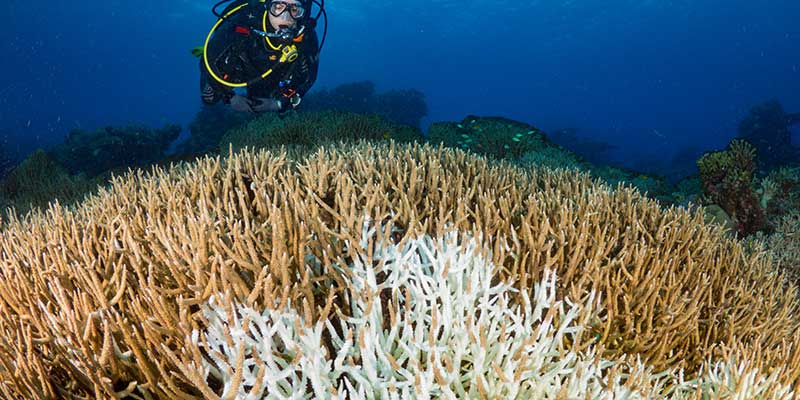
Terrestrial species are not spared either. The shifting climate forces animals to migrate in search of suitable habitats. However, not all species can move fast enough or find new homes that meet their survival needs. This leads to a decline in population numbers and increases the risk of extinction for many species.
Social Displacement and Conflict
One of the less discussed but equally critical impacts of global warming is social displacement. As natural disasters become more frequent and severe, people are forced to flee their homes. Climate refugees—those displaced by climate change—are becoming a growing concern for international bodies and governments worldwide.
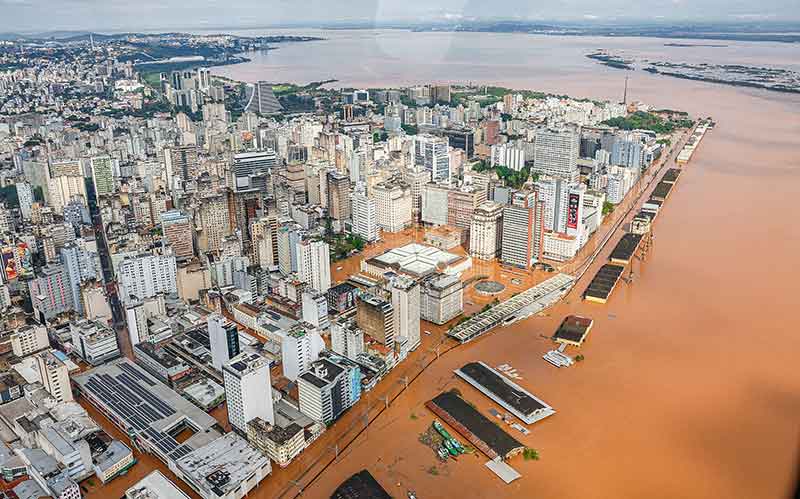
The competition for dwindling resources such as water and arable land can also fuel conflicts within and between nations. Historical grievances may be exacerbated by new pressures brought about by climate change, leading to instability and violence.
Steps Towards Mitigation
While the picture painted thus far may seem bleak, it is important to recognize that steps can be taken towards mitigating the effects of global warming. Reducing our reliance on fossil fuels, one of the primary contributors to greenhouse gas emissions, and progressing to hydroelectric, solar, and wind power is a major step forward.
Promoting energy efficiency in homes, industries, and transportation can significantly cut down on emissions as well. Additionally, reforestation projects help absorb carbon dioxide from the atmosphere while preserving biodiversity.
International cooperation is crucial in addressing global warming effectively. Agreements like the Paris Accord aim to bring countries together in committing to reduce emissions and limit global temperature rise.
Conclusion
Global warming is not just an environmental issue; it is a multifaceted crisis affecting every aspect of life on Earth. From environmental devastation and human health risks to economic challenges and threats to biodiversity—its impacts are profound and far-reaching.
Addressing this crisis requires collective effort at both individual and governmental levels.
By understanding the breadth of global warming’s consequences, we can better appreciate the urgency for action. It is not merely about saving polar bears or preventing sea levels from rising—it is about ensuring a habitable planet for future generations. The time for complacency has long passed; now is the time for decisive action against global warming’s unseen hand shaping our world.






























